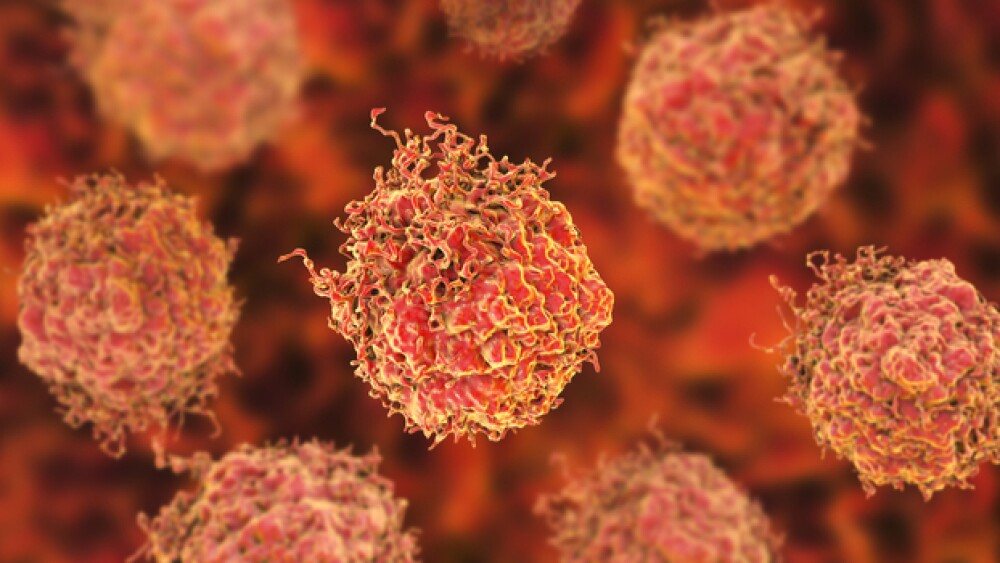As the American Society of Clinical Oncology 2019 Genitourinary Cancers Symposium (ASCO GU) rolls on, companies are showcasing more data in presentations. BioSpace takes a look at some of the latest.
As the American Society of Clinical Oncology 2019 Genitourinary Cancers Symposium (ASCO GU) rolls on, companies are showcasing more data in presentations. BioSpace takes a look at some of the latest.
On Thursday, Bristol-Myers Squibb announced interim data from its pivotal CheckMate-650 trial, which showed that a combination of its PD-I inhibitor Opdivo plus Yervoy provided a significant response in patients with metastatic castration-resistant prostate cancer. Results from an interim analysis of the Phase II CheckMate-650 trial showed that among 32 patients the objective response rate (ORR) was 25 percent following a median follow-up of 11.9 months. Trial participants were considered symptomatic or minimally symptomatic patients whose disease had progressed after second-generation hormone therapy and who had not received chemotherapy. Additionally, among 30 patients whose disease progressed after taxane-based chemotherapy, with a median follow-up of 13.5 months, the ORR was 10 percent, BMS said. The pharma giant said that across both cohorts of the trial, higher response rates were seen in certain patient sub-groups, including patients with high (above median) tumor mutational burden and patients with homologous recombination deficiency.
Padmanee Sharma, a professor of Genitourinary Medical Oncology and Immunology at The University of Texas MD Anderson Cancer Center, said the results from the Phase II CheckMate-650 trial provide strong rationale for the development of combination immune checkpoint therapy for the treatment of prostate cancer. Arvin Yang, development lead in melanoma and genitourinary cancers at Bristol-Myers Squibb, said the interim results of the trial reinforces the company’s commitment to “identifying the patient populations most likely to derive benefit from Immuno-Oncology-based regimens across tumor types and in hard-to-treat patient populations.”
In its own study of metastatic castration-resistant prostate cancer (mCRPC) treatments, Janssen, a Johnson & Johnson company, presented early results from its ongoing Phase II GALAHAD study evaluating the PARP inhibitor Zejula (niraparib) in those patients with mCRPC and DNA-repair pathway defects (DRD). Preliminary data showed that approximately 40 percent of patients with DRD in BRCA1/2 who received Zejula demonstrated an objective response as a standard measure of tumor response. Additionally, a composite response rate of more than 60 percent was seen, the company said.
At the time of the interim analysis, treatment with niraparib in the 29 patients with mCRPC and BRCA1/2 mutations achieved a 38 percent objective response rate and a 62 percent composite response rate. Lead GALAHAD investigator Matthew Smith, director of the Genitourinary Malignancies Program at the Massachusetts General Hospital Cancer Center, said the preliminary results suggest that PARP inhibition may play an important role in the treatment of men with metastatic castration-resistant prostate cancer who have mutations in DNA-repair genes. Margaret Yu, head of clinical development in prostate research at Janssen, noted that these patients have a poor prognosis. The patients with this DNA-repair pathway defect typically only have an objective response rate of less than 15 percent and a median progression-free survival of three months with currently available therapies, she said.
Bayer also presented data from its Phase III ARAMIS trial in patients with non-metastatic castration-resistant prostate cancer (nmCRPC). The data showed a statistically significant improvement in metastasis-free survival (MFS) with the investigational drug darolutamide, a nonsteroidal antiandrogen, plus androgen deprivation therapy (ADT) compared to placebo plus ADT. The company said the data translates to a 59 percent reduction in the risk of metastasis or death. The median MFS was 40.4 months in the darolutamide arm compared with 18.4 months for the placebo arm – an overall difference in median MFS of 22 months.
Bayer plans to discuss the data from the ARAMIS trial with health authorities regarding the submission of new drug applications. Bayer has been granted Fast Track designation by the U.S. Food and Drug Administration (FDA) for darolutamide in men with nmCRPC. Darolutamide is being developed jointly by Bayer and Finland-based Orion Corporation.





